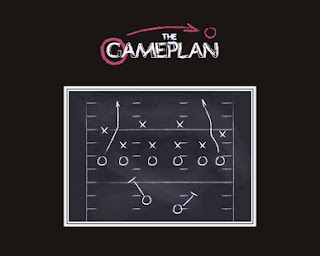How Your Tax Refund can Help You
Become a Chicagoland Home Buyer
If you're one of those estimating you'll receive a refund on your taxes ... and you dream of buying a Chicagoland home in the future ... now is the perfect time to:
- Get Started
- Ask your financing questions
- Discover what options you have to borrow and buy
- Position yourself for the mortgage best suited to your needs
- Contact Me
The refund money you receive can be extremely helpful in buying a home. A common use for the refund money is to use it as a downpayment on a home.
There is good news for those hoping to do just that. Why? There are presently many mortgage options available for hopeful homebuyers to consider and use. Those include many that require only small down payments. (Note: It's a myth that you need 20% down to buy a home.)
The following are examples of mortgage options that are available (when qualified) to Chicagoland area home buyers/borrowers with smaller/no down payments saved:
- 3.5% Down Payment FHA loans
- 0% Down Payment VA loans (Qualified Veterans)
- 3% Down Payment Conventional loans
- 0% Down Payment USDA loans (Eligible Applicants – Eligible Locations)
But it's also true that your tax refund can help you qualify for mortgage financing (that's where I come in) ... or simply put you in a better place financially after you've purchased.
During your mortgage analysis, I'll help you find the best and wisest use for your refund monies. And where their expenditure makes most sense and positions you best to qualify for the mortgage needed at the time of purchase.
However, we may find that it's most advantageous for you to think "outside the downpayment box" with your tax refund.
Your monies may be best spent:
- Paying down some credit cards, which in turn will raise your credit scores
- Growing your "Reserve Funds"
- Paying your Closing Costs
- To pay-off a smaller loan (car loan, etc.)
- To pay-off a Collection
- As Earnest Money towards your purchase
- To eliminate Private Mortgage Insurance
- More ...
Just as coaches and players must have a "game plan", plan ahead to position players on a field, and to successfully play and win games ... so must hopeful home buyers plan and position themselves for success when buying and financing a home.
Fact is though until you and I analyze your present financial position and your future financial goals, you won't have a game plan. You won't know how to use your tax refund most advantageously ... or most easily reach your home buying goals.
Another reason that tax refund time is the perfect time for us to talk? It revolves around the documentation that is required when getting a loan.
Mortgage Lenders need to view tax returns (latest 2 years), W-2's, and more in order to pre-qualify you for a loan and to assist you in mortgage application. At tax filing time, you'll simply have the numbers and documents from your accounts and tax filing fresh in your mind, at your fingertips, and readily accessible.
For those that might find this portion of the financing process a challenge, tax refund time is a godsend. It makes it "easy breezy", as they say.
Even if you're thinking that buying a home is a year out or more, it makes sense for us to have a preliminary talk now. You'll have a better understanding of your present credit standing and finances.
Plus, you'll move forward with a more clear plan in mind. A plan that will help you eliminate any present financial or credit issues that may exist ... and place you in a much better position as you grow closer to mortgage application.
Receiving a tax refund? Is New Lenox - Will County - Chicagoland home buying in your future? Let's talk ...
(Remember: You have until Monday, April 15, 2019, to file 2018 returns and pay any taxes due.)
* Hoping to Buy or Refinance a Home in New Lenox or elsewhere in the Chicagoland area? Contact me! I'll put my 40+ years of Mortgage experience and expertise hard to work on your behalf.
I'm easily found at:
Gene Mundt
Mortgage Originator - nmls #216987 - IL Lic. 031.0006220 - WI Licensed
American Portfolio Mortgage Corp.
nmls #175656
Direct: 815.524.2280
Cell or Text: 708.921.6331
eFax: 815.524.2281
Gene Mundt, Mortgage Originator, an Originator with 40+ years of mortgage experience, will offer you exemplary mortgage service and advice when seeking:
Conventional, FHA, VA, Jumbo, USDA, and Portfolio Loans in Chicago
and the greater Chicagoland region, including:
The Lincoln-Way Area, Will County, (New Lenox, Frankfort, Mokena,
Manhattan, Joliet, Shorewood, Crest Hill, Plainfield, Bolingbrook,
Romeoville, Naperville, etc.), DuPage County, the City of Chicago,
Cook County, and elsewhere within IL & WI.
Referrals are Appreciated and Welcomed!























